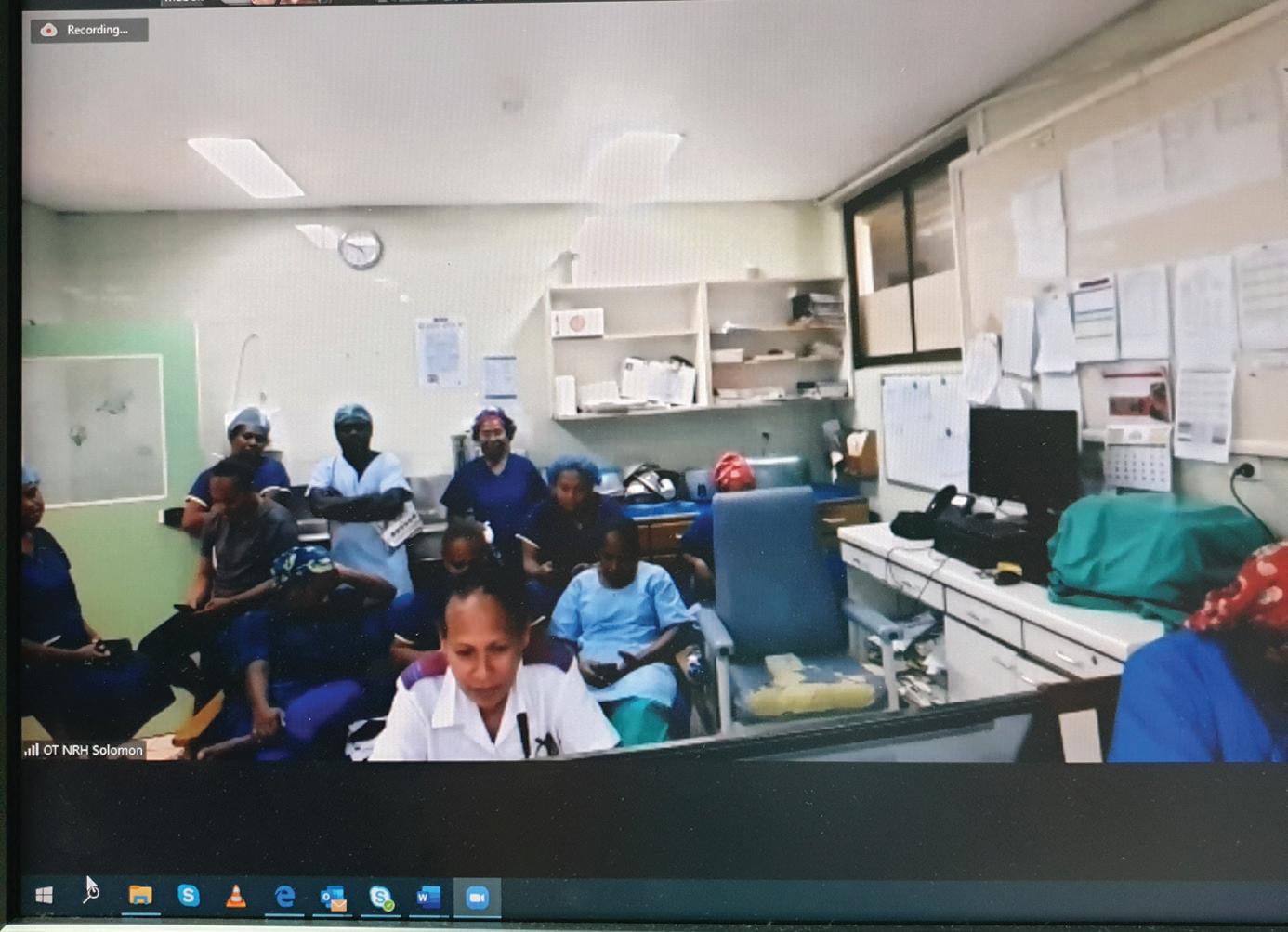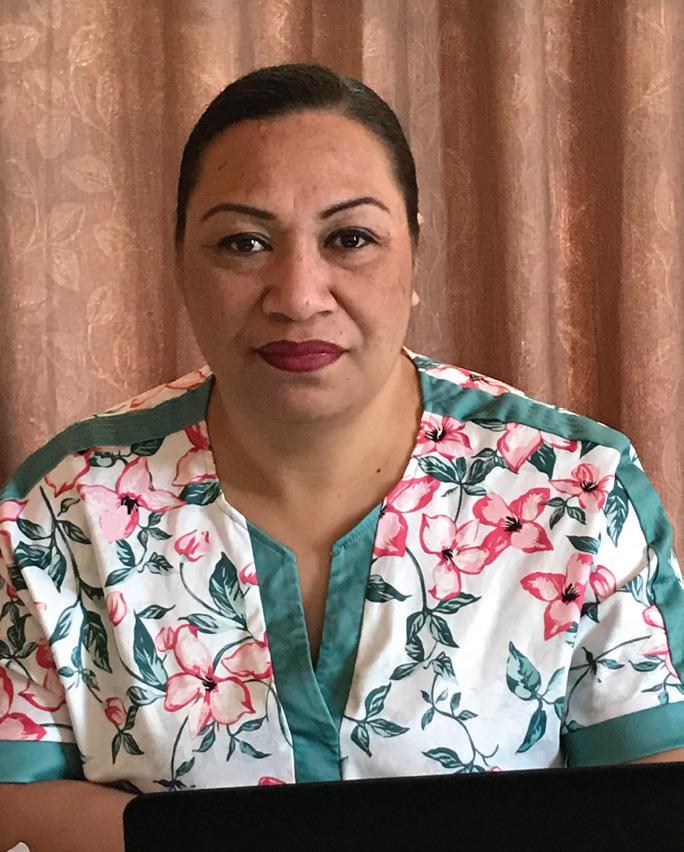20
Global and Indigenous health feature
Preventing ear disease and hearing loss in Tonga
or ENT (ear, nose and throat). She chose the latter, she said, because “at that time there was only one ENT surgeon in the whole of Tonga,” although since then others have come onboard to provide medical care for the population of 110,000 people. Ear disease is a common problem in Tonga, especially in children, and that is one of the focuses of Dr Lopati’s work. It’s not easy, she said, because “there’s little awareness or education about ear health”, and the only time the medical staff are able to educate parents or collect data is when the families come into the clinic.
Dr Sepiuta Lopati is working to introduce screening and early intervention for childhood ear disease in her home country.
The most common ear problems in children in Tonga are acute and chronic otitis media, wax build-up in children’s ears and associated hearing problems. Although these health problems are widespread throughout the outer islands, Dr Lopati said she is unable to focus solely on treating ear disease in her daily practice
because she is required to look after all three components of ENT. There’s no ENT training in Fiji for Tongan surgeons, and this leaves Dr Lopati to learn from visiting teams of ENT surgeons from Australia and other countries. “If we have difficult cases and need a team to come to Tonga, we contact the Royal Australasian College of Surgeons (RACS),” she said. “We collect all the patients and the team stays for a week and operates. They also give us training and that way we learn more advanced surgical skills,” she explained. RACS Global Health has been supporting Pacific Island countries through the Pacific Islands Program (PIP) since 1995. It is funded by the Australian Government through the Department of Foreign Affairs and Trade (DFAT). When the PIP commenced, it was almost exclusively clinical service delivery.
Imagine 172 islands floating in the turquoise water of the Pacific where, every year from July to October, hundreds of humpback whales swim 6000 kilometres from Antarctica to give birth and mate. It’s a remarkable cycle that sees whale calves born where they were conceived the previous year, and Tonga is one of the few places in the world where humans can swim with these giant, gentle creatures. This is Dr Sepiuta Lopati’s heritage. But like most Pacific Islanders wanting to study medicine, she had to travel to the Fiji School of Medicine to complete her training. After graduating in 2003, she returned to Tonga to complete her internship and was provided with three specialty choices: radiology, pathology
Above left: Dr Sepiuta Lopati. Above: Dr Lopati with government ministers and RACS ENT specialty coordinator on World Hearing Day in Tonga.



















